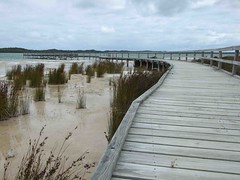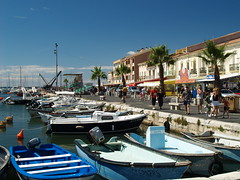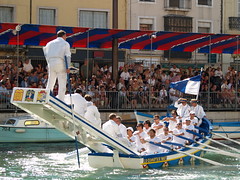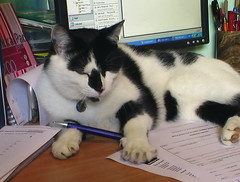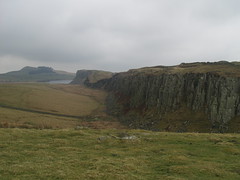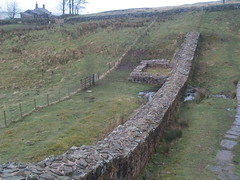Just an update on how I’m getting on with my e book readers. At present we are evaluating four different readers: the Irex Iliad, the Sony reader, the BeBook and the CyBook. We are looking at how easy they are to get started with, readability, usability and their different functionalities. For example, whether it’s possible to annotate them, how easy it is to read pdfs, which formats work on each reader and how the availability of resources affects choice. We’re also asking folks to tell us how they envisage using a reader in their academic life – might a Masters student use one differently to a teacher,librarian or administrator, for example – and which features they find most useful and most irritating!
I have developed a short questionnaire covering these areas and would love to have some more data, so if you are using an ebook reader or know someone who does, please do get in touch.
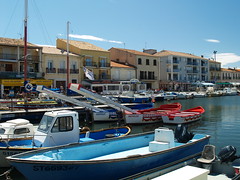
Meze harbour, Summer 2008

